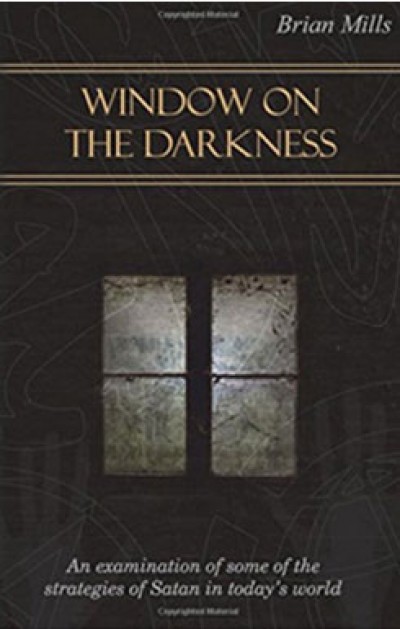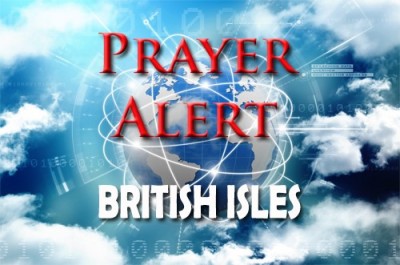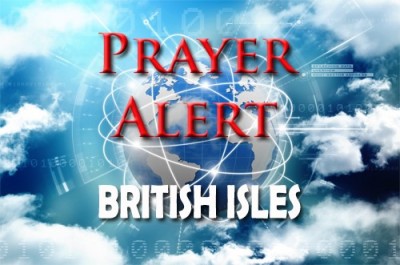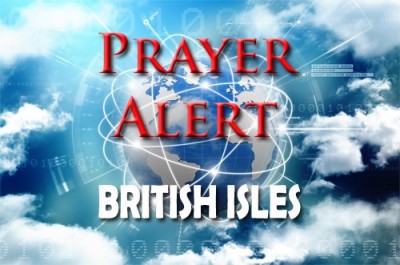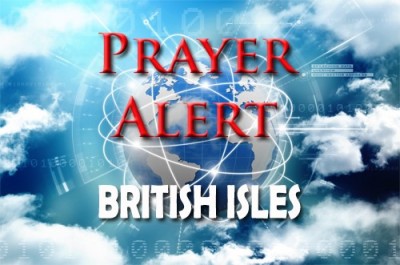BOOK: Window on the Darkness – by Brian Mills
01 Oct 2019This is a second edition of this widely read and highly acclaimed book written by the respected father of the worldwide Prayer Movement - Brian Mills.
Have you ever wondered just why the darkness in the world today seems to be getting darker, and what can be done about it?
This book sheds fresh light on this topic, and on the spiritual nature of this darkness. It shines the light of Scripture on the evil one and on the way in which so many have become bewitched. This is a clarion call to the church and individual Christians to get ready to do battle with the powers of darkness, and to shine Christ's light more powerfully.
Brian Mills writes out of many years of experience in international prayer ministry. He is a senior advisor in the International Prayer Council and is one of the leaders in the International Reconciliation movement. He has ministered in over 75 nations and authored nine books to date. He is also part of a global group that is seeking to understand more about the dark spiritual powers at work in the world.
Excerpts from some recent reviews:
"The most informative book for our times I’ve read for a long time." (John D Robb - Chairman, IPC Prayer)
'Thought provoking insights into the spiritual aspects of today's world and reminder of our role to pray. Well worth a read.' JRB - Amazon
'An easily read and timely call to vigilance and to personal holiness. Much needed. We've bought a number of copies for passing on to friends.' RC - Amazon
'Strategic book for understanding tactics of the enemy! I have now read this twice it is so appropriate for preparation for mission, for church leaders and intercessors!' Anon - Amazon
This version includes some minor revisions, lay-out changes and is increased to 150 pages.
Order ‘Window on the Darkness’ by Brian Mills in print or Kindle formats from:
Amazon USA http://a.co/7zeqIKd $11.36 Paperback | $3.74 Kindle
Amazon UK http://amzn.eu/0BMEL6l £8.99 Paperback | £2.99 Kindle
PRAY FOR OUR WORLD'S 1+ BILLION HINDU NEIGHBORS
OCT 20 - NOV 03, 2019
Our 3rd annual Hindu World Prayer Focus calls Christians to spend 15 days learning about and praying for our world’s 1+ billion Hindu neighbors.
These 15 days also coincide with the important Hindu Festival of Light.
The informative 32-page prayer guide booklets will help you know how to pray for the people within this major and very diverse world religion.
The Hindu World Prayer Guide (third annual edition) is now shipping.
Go to www.15daysprayer.comfor information.
Hope Youth
26 Sep 2019Hope Youth (formally Hope Revolution), the youth arm of Hope Together, seeks to engage young people from across the church in mission and evangelism. Hope Youth has numerous partners including but not limited to the Church of England, Alpha, Limitless, Youth for Christ, Scripture Union, Message Trust and the Pais Movement. Collectively this group has facilitated the creation of various initiatives and resources including Mission Academy, Mission Academy Live, and Amplify, part of Advance 2020, an evangelistic movement to promote and stir up the gift of the evangelist building towards a cross-country outreach in 2020. Alongside this they are praying and planning together for what an intentional, strategic, and spirit-filled year of mission will look like in the UK in 2020, taking the gospel to the nation on an unprecedented scale. See
Worship killed cancer
26 Sep 2019Evelyn had an MRI scan and was told that she had an inoperable, benign tumour on her brain. While she went through five rounds of radiation, her husband was dying and she needed to take care of him. ‘God, where are You through all of this?’ she cried. She recruited a prayer group to support her. After six months, the tumour had grown and engulfed the optic nerve. She might go blind. Instead of flagging in faith, Evelyn experienced a surge of faith. She believed God wanted her to stop asking for healing and start praising Him for healing. Evelyn requested her prayer group and family members to do likewise. They reluctantly followed orders. Nine months after her initial diagnosis, the doctor said the tumour was dead. The tumour dissolved, and her husband lived long enough to know that she was well, so she is grateful for that.
Parliamentary conflict
26 Sep 2019After the Supreme Court had decided that the proroguing of Parliament was illegal, MPs returned to the Commons on 25 September for an evening of inflamed rhetoric with debate resorting to a session of offensive, dangerous language. The BBC reported, ‘We are seeing the raw conflict that had to play out, the fight Theresa May delayed but couldn't make disappear. Politics moves so fast, it's impossible to tell if the cries of horror in SW1 will fade to nothing, or how far they have reached beyond Westminster's bubble. The situation is ever-shifting and could transform within days. It is almost impossible to imagine this group of politicians being able to agree on much.’ Let us pray according to Proverbs 15 for gentle answers to turn away wrath, for God to adorn MP’s tongues with wisdom, and knowledge and for the eyes of the Lord to reach every corner of parliament, prompting calm considerations and restraint. May the Houses of Parliament produce great treasures of domestic debate, spoken by wise lips and spreading knowledge.
Christians comment on Supreme Court's ruling
26 Sep 2019Christian evangelist David Robertson tweeted, ‘Having read the judgement, it seems to me that the court was right - although the motives of those who brought the case were more to do with stopping Brexit than asserting the sovereignty of the House of Commons - which of course they want to give away.’ Christian blogger Archbishop Cranmer said, ‘If the prorogation was “void and of no effect”, then the Queen's Order was “void and of no effect”, and so the Crown has become subject to the judgments of the Supreme Court. Her Majesty's constitutional powers to advise and warn her Prime Minister, or even “in extremis” to refuse his or her advice, are now subject to the judgments of the Supreme Court. If the Queen wills it, the Supreme Court can un-will it. This is a seismic constitutional shift in the United Kingdom, if not an inglorious revolution.’ Sir Gary Streeter MP, chair of Christians in Parliament, said it was time for a general election.
Advocate for children at police stations
26 Sep 2019Looked-after children, particularly those living in residential care, are disproportionately criminalised, compared to others. They are less likely to receive support from family or a trusted adult at police stations, and they should be entitled to additional protections set out in law, policy and guidance. A guide has been produced to help lawyers advocate effectively for looked-after children in custody. It offers guidance on practical steps that lawyers should take to ensure that they receive the support and assistance they need and are entitled to. There is a growing number of children coming into care, and lawyers need to know the factors that can contribute to their criminalisation. The Howard League for Penal Reform said, ‘The over-representation of looked-after children in the criminal justice system is a disgrace that has been known about for years.’ Pray for all children to have their care needs met in the community and in custody.
Government urged to ban pointed domestic knives
26 Sep 2019A five-year study in Edinburgh found that 94% of sharp instruments used in homicides were kitchen knives. Criminologists, MPs, and religious leaders published an open letter advising the Government to promote safe kitchen knife designs and restrict designs which are used in so many violent acts. They said, ‘The UK has worked for the public good by restricting handguns, paracetamol, smoking in public, and plastic bags - now it is time to say “no bloody point”.’ The Bishop of Tonbridge said that there was never one victim of knife crime: ‘Knife crime rips up the lives of families and friends, piercing the networks that give us life, meaning and support. Knife crime can be reduced if we follow the evidence trail, devote our resources to the right places, share knowledge smartly and value the organising power of local communities. The Church has a role to play, for it is located in most, if not all, places.’
